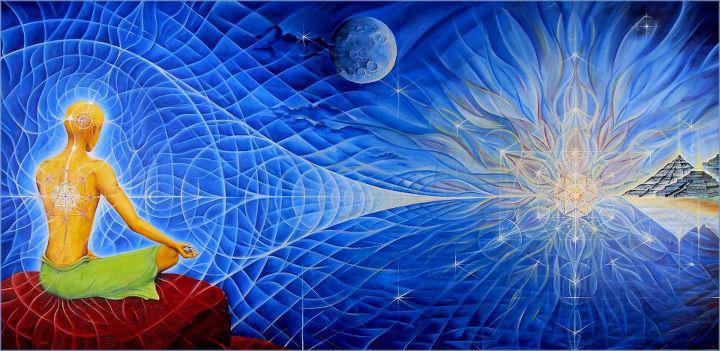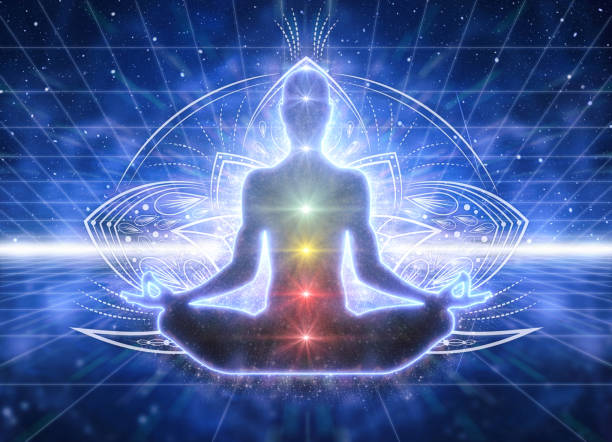The Concept of Moksha in Hinduism.

Introduction to the Concept of Moksha
Moksha is a term that resonates deeply within the vast tapestry of Hinduism. It embodies the ultimate goal of human existence—a state of liberation and freedom from the cycle of birth, death, and rebirth. But what does this truly mean? As we navigate through life’s challenges, many seek answers to profound questions about our purpose and destiny. The concept of Moksha offers insights into these age-old inquiries.
In a world where material pursuits often overshadow spiritual aspirations, understanding Moksha becomes increasingly vital. This ancient philosophy invites individuals on a transformative journey toward self-realization and enlightenment. So, let’s delve into this captivating aspect of Hindu belief, exploring its significance in both past traditions and modern practice. What awaits us on the path to liberation?
Understanding the Hindu Belief System
Hinduism is a rich tapestry of beliefs, traditions, and philosophies. At its core lies the understanding of the universe as interconnected. Everything in existence is part of a grand cosmic order known as Dharma.
The belief system emphasizes the importance of individual paths toward truth and spirituality. This diversity allows followers to explore various practices and deities while remaining rooted in shared principles.
Central to Hindu philosophy are concepts like karma, which dictates that every action has consequences. This encourages personal responsibility and ethical living.
Reincarnation plays a crucial role too; it presents life as an ongoing journey rather than a single experience. Each soul undergoes cycles of birth and rebirth, striving for spiritual growth with each iteration.
Through this intricate framework, Hindus seek ultimate truths that resonate deeply within their lives. The quest for Moksha springs from these foundational beliefs, offering liberation from life’s cyclical nature.
The Journey towards Moksha
The journey towards Moksha is deeply personal and varies for each individual. It begins with self-awareness and understanding one’s true nature beyond the physical body.
Hindu philosophy emphasizes the importance of meditation, yoga, and disciplined living. These practices help quiet the mind and foster inner peace. Through introspection, practitioners can detach from worldly desires that bind them to the cycle of birth and death.
Devotion plays a significant role too. Bhakti yoga encourages surrendering to a higher power, allowing individuals to transcend their ego-driven identities. This surrender opens doors to spiritual enlightenment.
Additionally, studying sacred texts offers guidance on this path. Scriptures like the Bhagavad Gita illuminate various routes toward liberation in Hinduism.
Communities also play an essential part in this journey. Engaging with like-minded souls fosters support as seekers navigate their unique paths toward attaining Moksha.
Practices and Rituals for Attaining Moksha
Attaining Moksha in Hinduism involves various practices and rituals designed to purify the soul. Meditation is a cornerstone practice, allowing individuals to connect with their inner selves and transcend worldly distractions.
Yoga also plays a significant role. Different forms of yoga—like Bhakti, Karma, and Jnana—serve as pathways for spiritual growth. Each approach caters to unique personalities and inclinations.
Rituals such as puja (worship) foster devotion to deities, encouraging followers to seek divine grace. Reciting sacred texts like the Bhagavad Gita provides guidance on living righteously while aspiring for liberation.
Pilgrimages to holy sites further enhance one’s spiritual journey. Visiting places steeped in history offers opportunities for reflection and connection with ancient wisdom.
Community gatherings or satsangs create an environment of shared learning and support in the quest for Moksha. Sharing experiences enriches individual paths toward spiritual liberation in Hindu philosophy.
The Role of Karma in Moksha
Karma plays a pivotal role in the quest for Moksha in Hinduism. It is the principle of cause and effect, where every action has consequences that shape one’s future experiences.
In this belief system, good deeds contribute to positive outcomes, while negative actions lead to suffering. This cycle influences not only current life but also future incarnations.
As individuals strive for liberation from the cycles of birth and rebirth, their karmic choices become crucial. Each action taken can either bring them closer to enlightenment or further entangle them in worldly existence.
Attaining Moksha requires conscious awareness of one’s karma. Practicing dharma—righteousness—becomes essential as it guides believers towards making ethical decisions aligned with spiritual growth.
Understanding karma encourages self-reflection and personal responsibility on the path towards spiritual liberation in Hindu philosophy.
Different Interpretations of Moksha in Hinduism
Moksha in Hinduism is not a one-size-fits-all concept. Different philosophical schools interpret it uniquely, shaping diverse spiritual paths.
Advaita Vedanta sees Moksha as the realization of non-duality. Here, liberation comes from understanding that the individual self (Atman) and the universal consciousness (Brahman) are ultimately the same.
In contrast, Dvaita Vedanta emphasizes dualism. Liberation involves devotion to a personal deity while maintaining an eternal distinction between the divine and individual souls.
The Samkhya philosophy views Moksha as freedom from ignorance through knowledge. This path focuses on discerning reality from illusion, leading to enlightenment and release from suffering.
Bhakti traditions offer yet another perspective—achieving Moksha through love and devotion towards God rather than intellectual pursuits or rituals alone. Each interpretation highlights different dimensions of spiritual liberation in Hindu philosophy, reflecting its rich tapestry of beliefs and practices.
Conclusion: Why the Concept of Moksha is Important in Hinduism Today
The concept of Moksha holds immense significance in Hinduism today. It represents the ultimate goal for many followers, embodying spiritual liberation and freedom from the cycle of birth and death. As individuals navigate their lives, pursuing material desires and fulfilling duties, the aspiration for Moksha serves as a guiding light.
In our fast-paced world filled with distractions, understanding Moksha can provide deeper meaning to life’s challenges. It encourages self-reflection and growth while cultivating virtues like compassion, non-attachment, and wisdom. This pursuit fosters a sense of purpose beyond material achievements.
Moreover, acknowledging the interconnectedness of karma and Moksha reminds us that our actions have lasting consequences. By promoting ethical living, this belief system nurtures harmony within ourselves and society at large. The journey towards attaining Moksha enriches not only individual lives but also strengthens community bonds through shared values.
As modern Hindus explore these ancient concepts amidst contemporary dilemmas, they find renewed relevance in their quest for peace and fulfillment. Embracing the teachings surrounding Moksha can inspire both personal transformation and collective progress within Indian culture—and beyond—making it an enduring pillar of Hindu philosophy today.










